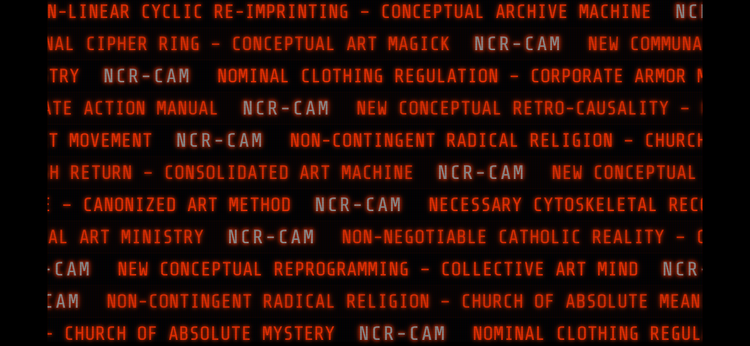The Ambience of Power: How Unrestrained Markets and Ambient Information Are Reshaping Democracy

Dawn had not yet broken on the election results when the familiar ritual began: Democrats falling out of love with their own. The enthusiasm that once surrounded candidates like Kamala Harris dissipated almost overnight. She was too coastal, they said, too centrist, too woke, too female. It’s a pattern we’ve seen before—a collective self-flagellation that misses the bigger picture.
While we agonize over candidate imperfections, a more insidious transformation is unfolding beneath our noses. It’s a shift from unrestrained markets to concentrated power, fueled by economic consolidation and a manipulation of the ambient flow of information. And leading this charge are figures like Donald Trump and Elon Musk, who have mastered the art of controlling not just industries but the very narratives that shape our reality.
Economic Consolidation and the New Feudalism
The path from free markets to monopolistic control is a well-trodden one. Successful companies absorb or crush competitors, and key infrastructures—transportation, communication, banking—fall under private control. Resources and supply chains become the property of a few corporate giants, creating ecosystems we depend on daily.
Elon Musk’s empire is a prime example. Through Tesla, SpaceX, Starlink, and Neuralink, he’s weaving a web of control over electric vehicles, space travel, global internet connectivity, and even the integration of technology with human biology. This isn’t just vertical integration; it’s the building of a private infrastructure that society increasingly relies upon.
Meanwhile, wealth concentrates among a tiny elite. Workers find themselves dependent on fewer employers, small businesses can’t compete, and communities rely on private entities for basic needs. Corporate leaders gain outsized political influence, and public institutions weaken as private power grows.
The Manipulation of Ambient Information
In this landscape, the flow of information becomes a battleground. The Democrats, clinging to outdated strategies of micro-targeting and local messaging, fail to grasp that information now travels along unpredictable, national paths. Ideas aren’t confined to communities; they ripple across the country through the ambient channels of social media and digital platforms.
Donald Trump understands this intuitively. He doesn’t bother with detailed policies or factual accuracy. Instead, he seeds the ambience of information with broad suggestions and big, sloppy notions that drift into the ether—immigration is a threat, the economy was better under his watch, the other side is corrupt.
This approach isn’t about argument or persuasion; it’s about saturating the environment with notions that eventually become accepted as common sense. It’s the power of ambient information in a low-attention society, where people are “rubbed by the news” rather than seeking it out. And with allies like Elon Musk—who controls platforms like X (formerly Twitter) and isn’t shy about injecting his own narratives—the manipulation becomes even more potent.
Social Breakdown and the Erosion of Truth
As corporate interests shape laws and regulations, media ownership allows for narrative control. Algorithms optimize for engagement over truth, independent journalism gets undermined, and facts become whatever serves power. Manufactured controversies distract from wealth transfer, and education becomes privatized propaganda.
Communities fragment along manufactured divisions. Public discourse becomes impossible as shared reality erodes. Critical thinking is labeled dangerous or subversive, paranoia and conspiracy theories flourish, and people become unable to distinguish truth from fiction. Knowledge becomes a tool of control rather than liberation.
The result? A society where democracy exists in name only. Truth becomes irrelevant to power, a culture of fear prevents organizing, and social bonds are destroyed by mistrust. Human potential is wasted serving power, and innovation serves control rather than progress.
The Democrats’ Misstep and the Need for Ambient Messaging
In this environment, the Democrats’ focus on detailed policy and micro-targeting misses the mark. Despite releasing comprehensive plans filled with figures, graphs, and footnotes, their messages don’t register in the ambient flow of information. Voters persist in misconceptions that are easily disprovable but deeply ingrained.
The problem isn’t the person or the policy; it’s the failure to engage with the ambient channels that shape perceptions. While Harris spoke at length about taxes and the kitchen-table economy, Trump was tuning voters’ ears to his national signal, filling the airwaves with notions that, true or not, coalesced into a coherent worldview for his supporters.
Conclusion: Reclaiming the Ambience of Democracy
The concentration of economic power and the manipulation of ambient information are two sides of the same coin, reinforcing a cycle where wealth and narratives serve the interests of a few. Figures like Trump and Musk exemplify this dynamic, leveraging their influence over industries and information to shape public perception and consolidate control.
If the Democrats—and indeed, all who value democracy—are to counter this trend, they must recognize the importance of the ambient flow of information. It’s not enough to have the right policies or the ideal candidate. The battle is over the narratives that permeate our daily lives, the notions we absorb passively but that shape our understanding of the world.
We must reclaim the ambience of information, ensuring that truth, equity, and the public good are the undercurrents that inform our collective consciousness. Only then can we hope to reverse the tide of concentrated power and rebuild a society where democracy isn’t just a name but a lived reality.






Member discussion